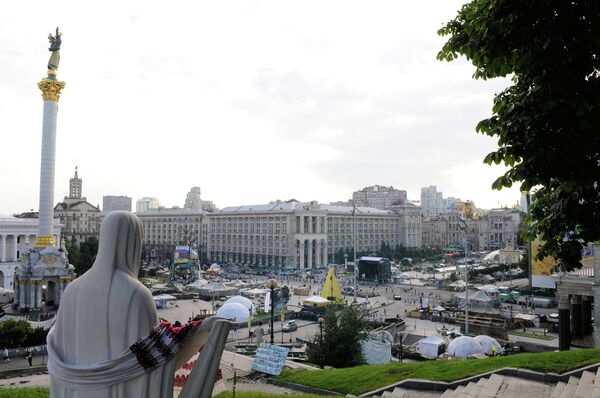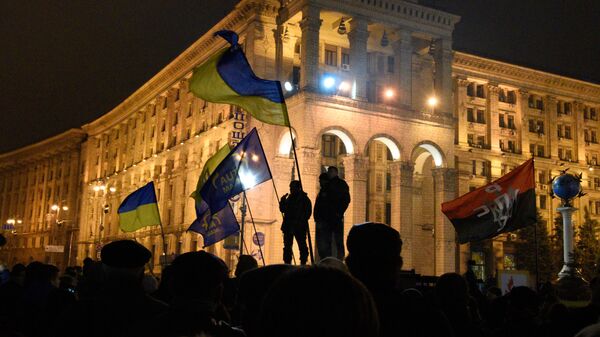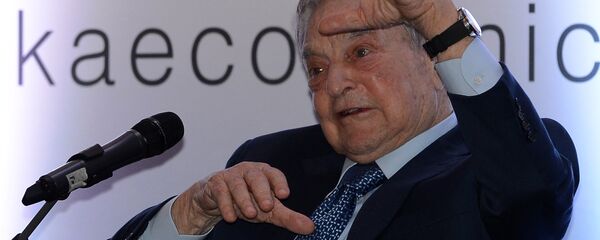The website referred to the results of an opinion poll that was conducted by the Ukrainian non-governmental marketing and sociological research company Research & Branding Group in July 2016.
According to the survey, about 56 percent of respondents also did not rule out that a new Maidan Revolution could take place in their country in the future.
The country had its first so-called Maidan Revolution in 2004 amid accusations that presidential candidate Viktor Yanukovych had committed voter fraud.

It followed up this 'Orange Revolution', which was known as 'Maidan' (named after Kiev's Independence Square or Maidan Nezalezhnosti), with a 'Revolution of Dignity' in 2014. Violent clashes with law enforcement broke out on the square, claiming the lives of some 100 civilians.
In this second Maidan, dubbed Euromaidan, the corrupt government of Yanukovych, who had become president following a fair and democratic election, was ousted by a US-backed coup. Russia refused to recognize the new interim government, and when the predominantly Russian region of Crimea, which had been ceded to Soviet Ukraine by Soviet Russia in the 1950's, voted for independence and subsequently to reunify with Russia, Russia accepted.
According to the survey, 68 percent said that the goals that were established during the first Maidan and Euromaidan were never reached, a standpoint that was opposed by just five percent of respondents.
In addition, around 53 percent said that they did not support the so-called anti-terrorist operation in eastern Ukraine, which was backed by a third of respondents.
The poll also showed that more than half of Ukrainians remained pessimistic about the possible introduction of a visa-free regime with the EU; 57 percent of respondents said they didn't expect visa-free travel to become a reality in 2016.
As for the anti-terrorist operation, it was launched by Ukrainian security forces in April 2014 to reign in supporters of independence in eastern Ukraine's Donbass Region.
Kiev and the West have repeatedly accused Russia of backing the Donbass independence supporters, allegations that Moscow vehemently denies. When the breakaway regions of Lugansk and Donetsk voted to join Russia in 2014, Moscow refused, and later supported international efforts in Minsk to bring about an end to the conflict.




